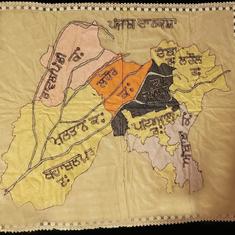After months of labour, Kesang, a local potato grower from Jabana village in Paro, Bhutan, took his produce to Phuentsholing town, a business hub bordering India.
To her dismay, an announcement across the border had plunged Indian buyers into chaos: Prime Minister Narendra Modi had just demonetised Rs 1,000 and Rs 500, the largest notes of the Indian currency, and Indian buyers did not have money to purchase Kesang’s wares. Finally, she settled for selling her potatoes at the lowest price she had ever sold at, to local buyers.
Like Kesang, many Bhutanese farmers were badly hit by demonetisation in India, with some failing even to meet their transportation costs to ferry their produce to Phuenthsoling. Demonetisation affected cardamom and orange export, as well as potatoes, ginger and cabbages from Bhutan, said Dorji Tshering, the secretary general of the Export Association of Bhutan.
Indian rupee is highly prevalent in Bhutan: as per a recent press release by the Royal Monetary Authority of Bhutan, it accounts for 30% of Bhutan’s international exchange reserves, amounting to approximately Rs 27 billion.
Indian transporters in Bhutan prefer cash to any other form of payment – cheques and demand drafts are too time consuming. As a result, cardamom growers who used to earn Rs 1,500 to Rs 2,000 per kg of cardamom are now selling at Rs 700 per kg.
Phuentsoling has no cold storage space, so while those selling products like cardamom and ginger could wait until the market stabilises, those selling oranges, cabbages and potatoes had to sell at once.

The local sellers said they wanted the government of Bhutan to come up with a way to be less dependent on trade with India, as demonetisation was affecting affecting both exporters and local farmers, whose yearlong expenses were dependent on crops like potatoes.
However, the people living at the border towns of Bhutan were not too affected by demonetisation – they said Indian retailers simply started to accept Bhutanese currency instead of Indian rupees.
Running out of stock

Deki, a garment shop owner in Bhutan, had been running from one bank to another looking for rupees to exchange with Bhutanese currency, but only managed to find Rs 10,000.
“My shop is running out of stock, and without Indian rupees I can’t travel to Siliguri and buy new stock,” said Deki. “Buying new stock will require purchases worth at least Rs 1,50,000 to 2,00,000.”
Most retailers in Bhutan exchange Bhutanese currency for Indian money every month from local banks, and import goods from Indian cities and states such as Siliguri, Kolkata, Sikkim, or even Nepal.
But the Royal Monetary Authority in Bhutan has limited the exchange to Rs 5,000 since the demonetisation of Rs 500 and Rs 1,000 notes in India. As a result, the dollar rate has reached a record high.
“Even dollar has limitation,” said Karma Dema, a businesswoman. “We do get dollars from the open market, especially through those returning from abroad, but they charge more than Nu 70 per USD 1. We are small retailers and buying dollars at this rate has hit our business badly.”
Not getting enough INR from banks in Bhutan has not spared those waiting to travel for pilgrimage and personal works in Nepal and India.
The fear of black money
Bhutan’s dependence on Indian rupees has made the entry of black money easier in the country. The inflow of rupees is mainly due to hydropower project constructions, which are usually joint ventures with the Indian government financing the export of goods and energy.
In November, shortly after the demonetisation announcement, Bhutan’s police caught a local taxi carrying Rs 7,00,000 in demonetised Rs 1,000 notes, during a sudden national highway check between Phuentsholing to Thimphu. Phuentsholing, Bhutan’s business hub, is directly connected by road with the Indian border town of Jaigaon in West Bengal. The demonetised notes were carefully hidden in a black plastic bag, under the passenger seat of the taxi.
Bank officials said they checked every detail of those entering Bhutan to exchange demonetised notes or even smaller Indian notes, with Bhutan’s currency. Officials agreed there was a good chance that locals were helping Indian friends and business contacts exchange black money.
To curb this, post-demonetisation, the Central Bank of Bhutan or Royal Monetary Authority has held a close discussion with the Reserve Bank of India. The RMA in Bhutan has publicly announced a limited period for depositing the old Rs 500 and 1,000 notes into bank accounts in Bhutan. Between November 9 and November 23, the RMA allowed exchange or deposits of up to Rs 10,000 per month, per person. The sum has now been reduced to Rs 5,000 a month.










